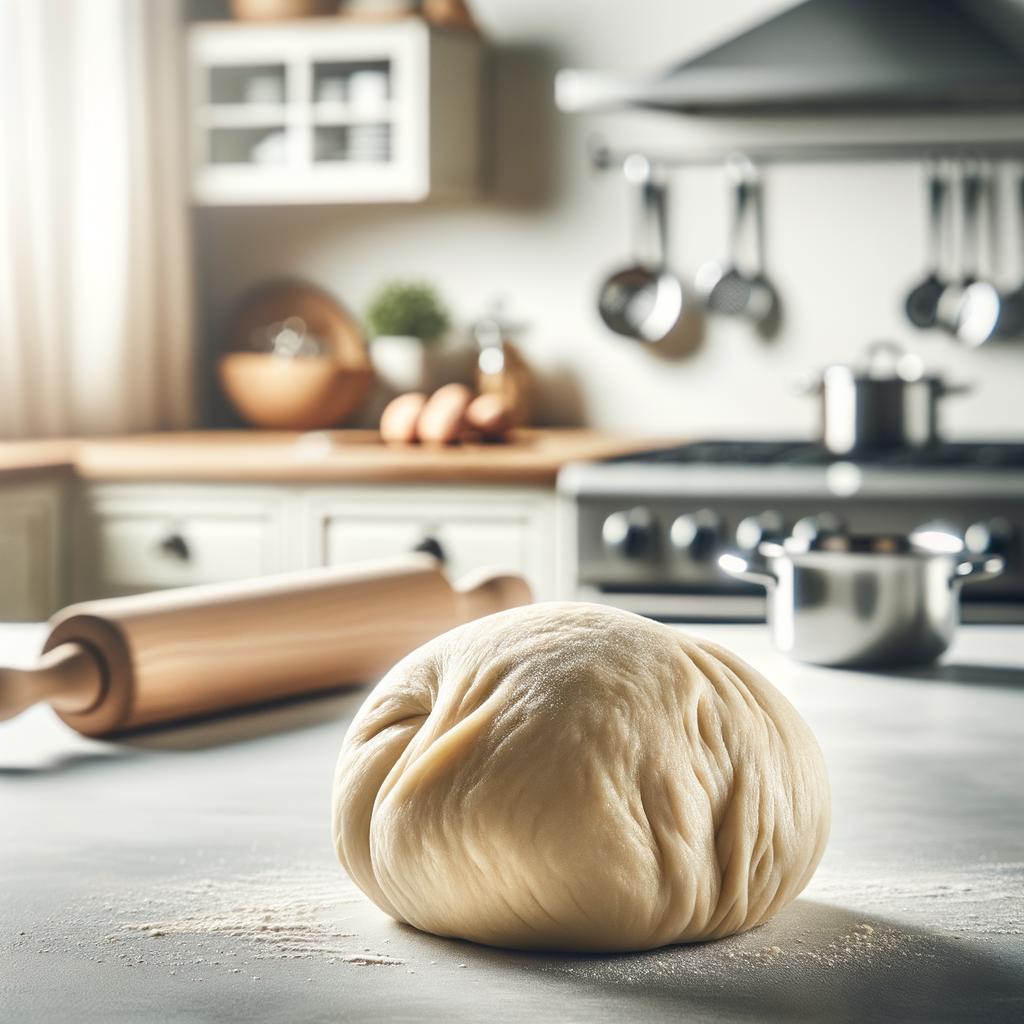for the Dough

Description Dough, a staple in every baker's kitchen, is a versatile and essential ingredient in the culinary world. It is a soft, pliable substance created by mixing flour with a small amount of water and sometimes includes yeast or other leavening agents. Depending on its preparation, dough can range from firm and elastic to soft and sticky. Its flavor profile is generally mild and subtly grainy, serving as the perfect canvas for a multitude of ingredients and flavors. What sets dough apart from similar ingredients is its transformative nature. When subjected to heat, it undergoes a magical metamorphosis, resulting in a myriad of delicious creations from bread to pastries.
Primary Uses Dough is the foundation of countless dishes across various cuisines. It is used to create bread in its many forms, from the crusty baguettes of France to the soft naan of India. Pizza crust, pretzels, and dumplings all owe their existence to this humble mixture. In the world of desserts, dough forms the base for pastries, pies, and cookies. Beyond its culinary uses, dough also has cultural significance. For instance, bread dough is often used in religious rituals and ceremonies, symbolizing sustenance and life.
History The history of dough is as old as civilization itself. It is believed that the ancient Egyptians were the first to make bread using dough around 3000 BC. Over time, the use of dough spread across cultures and continents, evolving with the introduction of new ingredients and techniques. For example, the Romans are credited with the invention of the water-mill for grinding grain, which resulted in a finer flour and subsequently, a smoother dough. There are also countless folk tales and myths associated with dough. In Jewish folklore, challah bread is made with a piece of dough set aside as a symbolic offering.
Nutritional Information Dough made from whole grain flour is a good source of complex carbohydrates, providing sustained energy. It also contains some protein and is low in fat. Whole grain dough is rich in dietary fiber, which aids digestion, and B vitamins, which support metabolism. Compared to dough made from refined flour, whole grain dough has a higher nutritional value, containing more fiber and nutrients. However, like all foods, dough should be consumed in moderation as part of a balanced diet. Overconsumption, particularly of dough made from refined flours, can contribute to weight gain and other health issues.

